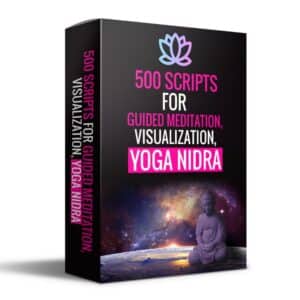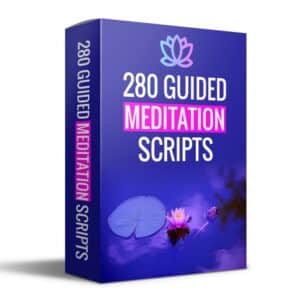Introduction to Mindfulness and Non-Judgment
Mindfulness is a way of being present and fully engaged with whatever we’re doing at the moment — free from distraction or judgment. Being non-judgmental is a core aspect of practicing mindfulness. It means observing your thoughts, feelings, and sensations without labeling them as good or bad.
What is Non-Judgment?
Non-judgment means observing your experiences without classifying them as positive or negative. Instead of reacting to your experiences with criticism or praise, you simply notice them and let them be.
Benefits of Non-Judgmental Mindfulness
- Reduces Stress: By not labeling your experiences, you reduce the stress associated with negative judgments.
- Enhances Self-Awareness: You become more aware of your thoughts and feelings without getting caught up in them.
- Improves Emotional Regulation: Non-judgment helps you respond to situations with clarity rather than reacting impulsively.
- Boosts Acceptance: Accepting things as they are can lead to a more peaceful and contented life.
Exercises to Cultivate Non-Judgment
1. The Observer Exercise
Goal: To observe your thoughts without attaching judgments to them.
Steps:
- Find a comfortable and quiet place to sit.
- Close your eyes and take a few deep breaths.
- As thoughts arise, observe them as if you are an external observer.
- Resist the urge to label these thoughts as good or bad. Just notice them and let them pass.
- Continue for 5-10 minutes.
Reflection:
After the exercise, reflect on how it felt to observe your thoughts without judgment. Was it challenging? Did you notice any patterns?
2. Mindful Listening
Goal: To listen without judgment.
Steps:
- Engage in a conversation or listen to a piece of music.
- Focus solely on the sounds or words being spoken, not on your opinions about them.
- If judgments arise, acknowledge them and then return to just listening.
Reflection:
Consider how your experience of listening changes when you do so non-judgmentally. Do you hear things you might have missed before?
Incorporating Mindfulness into Daily Life
- Morning Routine: Start your day with a non-judgmental observation of your thoughts and surroundings.
- Mindful Eating: Eat a meal without distractions, observing the flavors, textures, and sensations without judgment.
- Pause Before Reacting: When a strong emotion arises, take a moment to observe it without judgment before responding.
Conclusion
Practicing non-judgmental mindfulness can profoundly impact your mental well-being. It allows you to experience life more fully, without being clouded by unnecessary judgments. Remember, like any skill, non-judgmental mindfulness takes practice, so be patient and compassionate with yourself on this journey.
Discover the transformative power of mindfulness with our carefully curated collection of printable mindfulness worksheets and exercises. Each worksheet is designed to guide you through exercises that cultivate awareness, reduce stress, and promote emotional well-being. From grounding techniques to breathing exercises, these tools are your allies in navigating the complexities of daily life with a sense of calm and presence. Whether you’re a beginner or looking to deepen your practice, these printable resources are tailored to meet your needs.
Save up to 88% with our Bundles
Instant Download
- Digital Download
- Digital file type(s): 1x PDF
- Your files will be available to download once payment is confirmed

![Printable Non-Judgmental Mindfulness Worksheet & Exercises [PDF]](https://guidedmeditationscript.com/wp-content/uploads/2024/03/Printable-Non-Judgmental-Mindfulness-Worksheet-Exercises-PDF.jpg)
![Printable Nature Mindfulness Worksheet & Exercises [PDF]](https://guidedmeditationscript.com/wp-content/uploads/2024/03/Printable-Nature-Mindfulness-Worksheet-Exercises-PDF-300x150.jpg)
![Printable Painting Mindfulness Worksheet & Exercises [PDF]](https://guidedmeditationscript.com/wp-content/uploads/2024/03/Printable-Painting-Mindfulness-Worksheet-Exercises-PDF-300x150.jpg)
![15,000 Positive Affirmations Bundle [PDF]](https://guidedmeditationscript.com/wp-content/uploads/2024/01/15000-Positive-Affirmations-Bundle-PDF-1-300x300.webp)

![150 Best Hypnosis Scripts [PDF] Bundle](https://guidedmeditationscript.com/wp-content/uploads/2023/11/150-Best-Hypnosis-Scripts-PDF-Bundle-300x300.jpg)

![200 Printable Mindfulness Exercises Worksheets Bundle [PDF]](https://guidedmeditationscript.com/wp-content/uploads/2024/02/200-Printable-Mindfulness-Exercises-Worksheets-Bundle-PDF-300x300.jpg)


![Printable Easy Mindfulness Exercises & Worksheet for Adults [PDF]](https://guidedmeditationscript.com/wp-content/uploads/2024/02/Printable-Easy-Mindfulness-Exercises-Worksheet-for-Adults-PDF-300x150.jpg)
![Printable Mindfulness Worksheet & Exercises for Managing Insomnia [PDF]](https://guidedmeditationscript.com/wp-content/uploads/2024/02/Printable-Mindfulness-Worksheet-Exercises-for-Managing-Insomnia-PDF-300x150.jpg)
![Printable Mindfulness Exercises & Worksheet for Substance Abuse Groups [PDF]](https://guidedmeditationscript.com/wp-content/uploads/2024/02/Printable-Mindfulness-Exercises-Worksheet-for-Substance-Abuse-Groups-PDF-300x150.jpg)